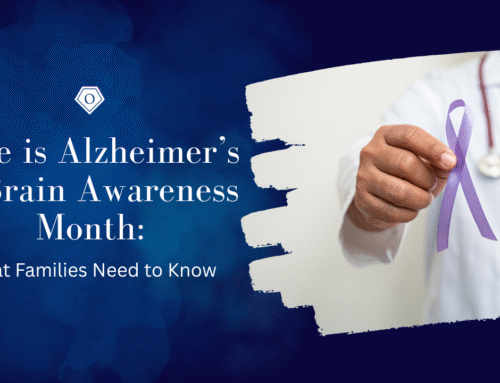Alz.org tells us that more than 11 million Americans provide unpaid care for people with Alzheimer’s or other dementias. In 2021, these caregivers provided more than 16 billion hours of care, valued at nearly $272 billion!
Eventually, these families need help and rest. Caregiving is a physically and emotionally taxing experience that can last for years. A person with Alzheimer’s may live up to 10 years (some live up to 15 or 20), but a person diagnosed in their 80s or 90s typically has a shorter life expectancy.
Many family caregivers consider it a priority to keep their loved ones in the comfort of home, but this becomes increasingly difficult as the disease progresses. Home health care allows you to respect your loved one’s wishes of staying at home while receiving needed support and medical care.
Top reasons family caregivers choose home health care:
- Spouses and adult children get to keep a loved one close
- Staying at home was a priority for the patient.
- Services can be scaled according to stages of dementia
- Family caregivers no longer have to do it alone
- Family caregivers can maintain a healthy life balance
- Family caregivers receive help with everything from housework to skilled nursing services for the patient
Dementia is typically characterized by seven stages, from no memory deficit to severe cognitive decline and severe dementia. Each stage comes with unique challenges for caregivers and can last for years. And support is key for you and your loved one to thrive in each stage.
Unique dementia needs home health care addresses:
- The patient stays in a familiar environment.
- A nurse has a skilled eye for changes and stages that come with dementia while making recommendations to the family.
- A nurse can manage medication struggles and med-box refills.
- Qualified professionals can aid with bathing challenges.
- Home health care nurses advocate for patients and families.
- Qualified professionals can ensure the home is equipped with assistive devices and tools to make life safer for the patient.
- Qualified professionals help families navigate the anger, aggression, anxiety, agitation, depression, hallucinations, and other emotional challenges in the middle stages of Alzheimer’s.
After a certain point, families need support and change – something has to give. Many families start with respite care, but this is short-lived. So family caregivers need long-term help and guidance. Deciding between assisted living or memory care is tricky. You’ll want to keep the wishes of your loved one and your capacity in mind. Rather than making a decision when you’re at your lowest, start asking for help sooner. Home health care allows families to begin with light care and ease into additional support as it is needed.
The impact of home health care for dementia patients:
- Family caregivers received needed emotional and physical support caring for a loved one.
- Patients receive high-quality and skilled medical care as the disease progresses.
- Patients stay in a familiar environment as the disease evolves, impacting their daily experience and routine.
- Family caregivers don’t feel alone or hopeless navigating emotional changes patients experience.
- Family caregivers feel safer and more equipped in their care.
- Family caregivers deal with fewer battles spurred by changes and significant challenges with the disease.
- Family caregivers get to move out of the caregiver role and back into their original role with their loved one – a spouse/friend/comforter.
Education and support can radically change the caregiving experience. We need community in our early years of life, and families need that same support in the end. So do not wait until you are experiencing caregiving fatigue or depression. Instead, get the skilled help you need to thrive.
Choosing long-term care is a burden that often falls to adult children and family caregivers. Our team is here to support you throughout the journey. Download our booklet to explore options that are right for your aging loved one and family. Download the booklet here.






